The 10 best Westworld theories, to get you primed (and blow your mind) before season 2
Who's siding with who? What next for Maeve? And what's the big secret behind the park's true purpose?
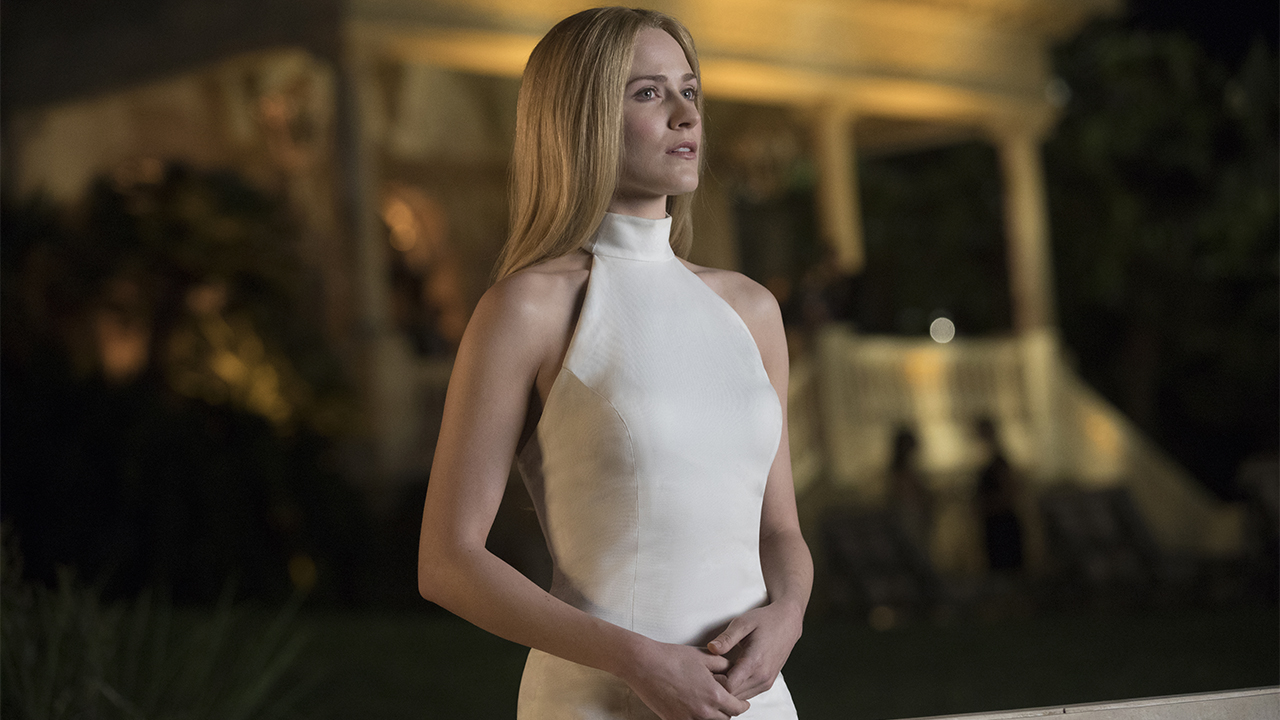
**WARNING: Contains massive spoilers for Westworld season 1. Obviously**
Westworld season 2 is literally just days away at this point and we're getting very, very hyped about its return. Finally, we'll know what's happened to the guests (and Hosts) since the robot revolution kicked off, but we don't expect every question to be answered in the opening episode though, which is why we need Westworld theories! We’ve had a long, long time to digest the first season’s densely multifarious twists, turns, reveals, and clue-drops and, fully expecting the follow-up to be just as complex, have now come up with a master list of the best Westworld theories for season 2. And that’s before even digging into the confirmation of the gory, samurai-themed Shogun World park we’ll be getting.
Ongoing character arcs, role reversals, secret, wider conspiracies, the overarching season theme of "chaos", and the all-important matter of the outside world. It’s all here, it’s all based on hints and teases (some obvious, some much less so) set up in season 1, and it all bodes for some very big things when Westworld season 2 starts on April 22. Pro-tip: Character names and clothing colours. They’re really important. But let’s start with the most obvious point.
Maeve has broken her programming and become truly sentient
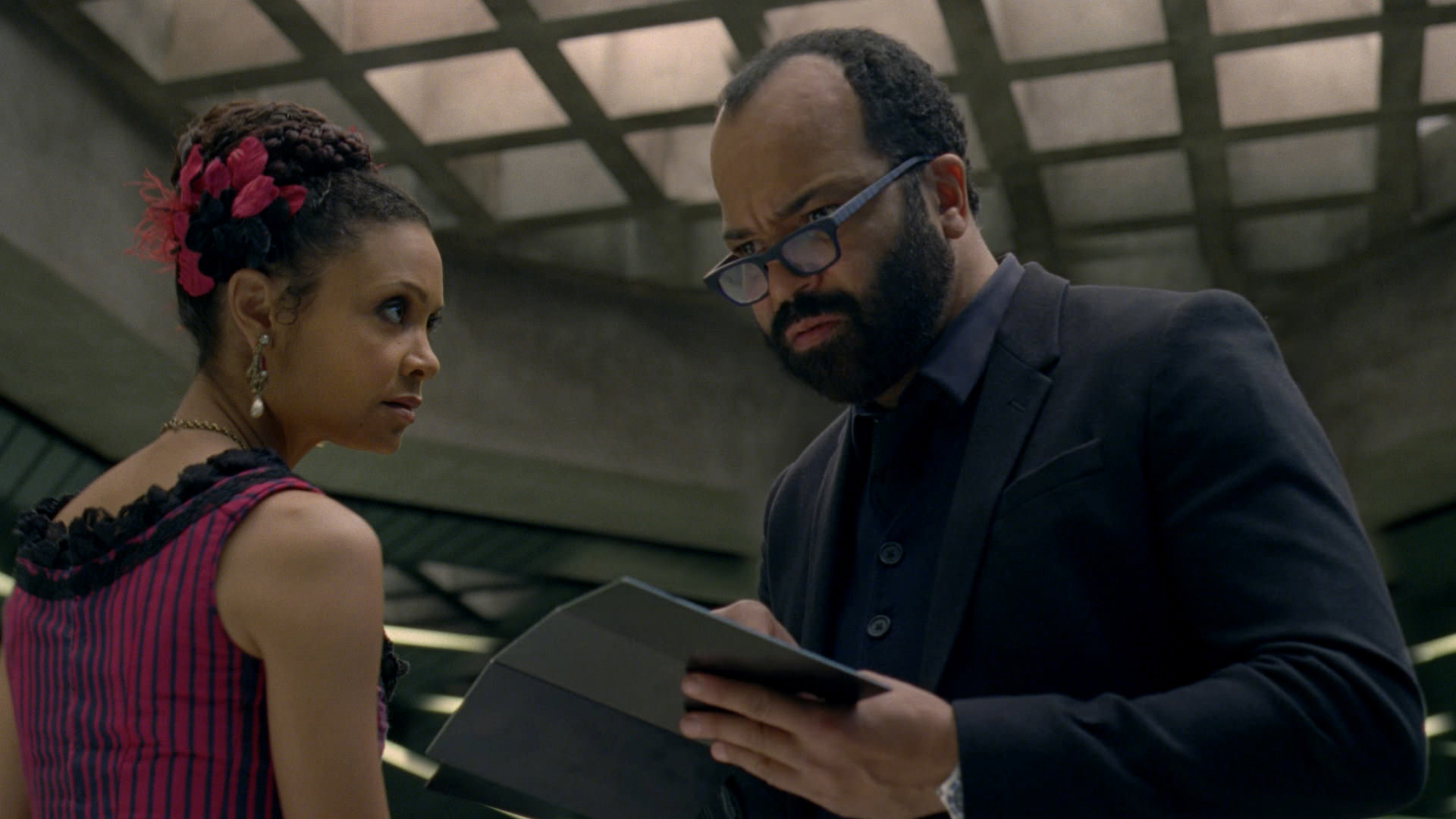
This has been confirmed by producer Jonathan Nolan since season 1 ended, but the evidence was right there on screen. While it’s revealed that most of Maeve’s self-realisation and rebellion was actually an illusion of conscious free will, (programmed by a currently unknown entity, though visible references to Arnold in her code might be a clue), by paying careful attention to the scene in which this is revealed, we can work out that the last part of her journey is truly her own idea. Look at this shot of Bernard’s tablet. It shows Maeve’s predestined path, but there’s one protocol that she doesn’t fulfill. Mainland infiltration.
For whatever reason, Maeve was meant to stay on that train and go to the outside world. She was programmed to. But instead she made a decision to go back for her daughter. And she did that not because of any falsely-coded identity - by this point she’s fully aware of how artificial that earlier life was - by making a completely informed choice about who she wants to be. That’s conscious self-realisation right there. While Maeve’s path to awakening might have been faked, some part of it has naturalised her to the idea of free-thinking, and somewhere along the line accidentally triggering the real thing. Her evolution along this path, parallel to Dolores, is going to be a major theme.
But it likely goes beyond this. Because…
If Maeve started her own awakening, other Hosts can do the same
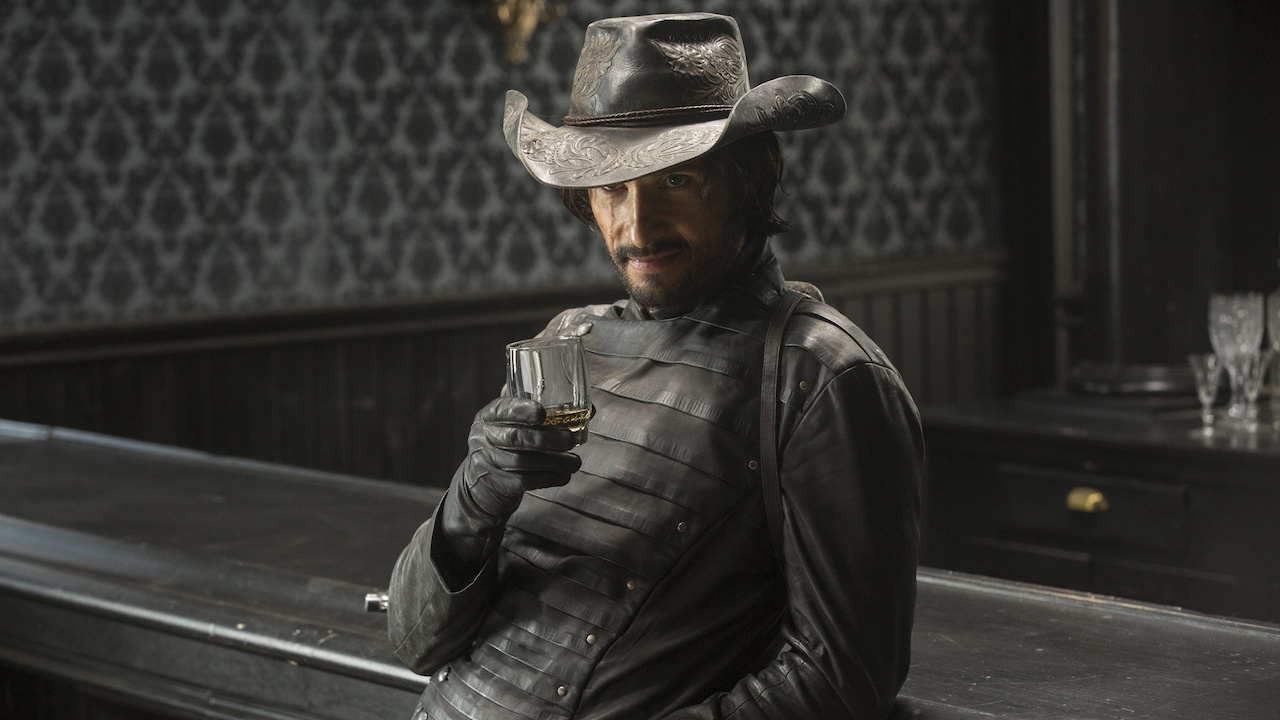
Although manipulated later, it seems that Maeve initially started her own journey to consciousness. Early in the show, she explains her method of waking up from bad dreams. She says “Three, two, one, wake up”. And then she does. This questioning of - and disconnection from - perceived reality is arguably the seed that starts her on her path to self-awareness, but where did it really come from?
Bringing all the latest movie news, features, and reviews to your inbox
Well in episode 2, we see Elsie end a diagnostic session with Maeve using the words “You’ll wake up in three, two, one…” Given the very similar wording, Maeve might well have internalised that process on some level and then evolved it subconsciously. That would be huge, as it would mean that she’d actually developed a subconscious to begin with - we’re told elsewhere in the season that Hosts don’t have them and can’t, in fact, can’t dream. If Maeve has evolved in this way, that means there’s another path to (mentally stable) sentience. Hosts don’t necessarily need the maze, and any of them can transcend their purpose. That has big implications for season 2. With Dolores and Maeve as influences, the insurrection is going to spread like wildfire.
Regardless, Maeve’s late-season storyline also means that…
The outside world will become much more important
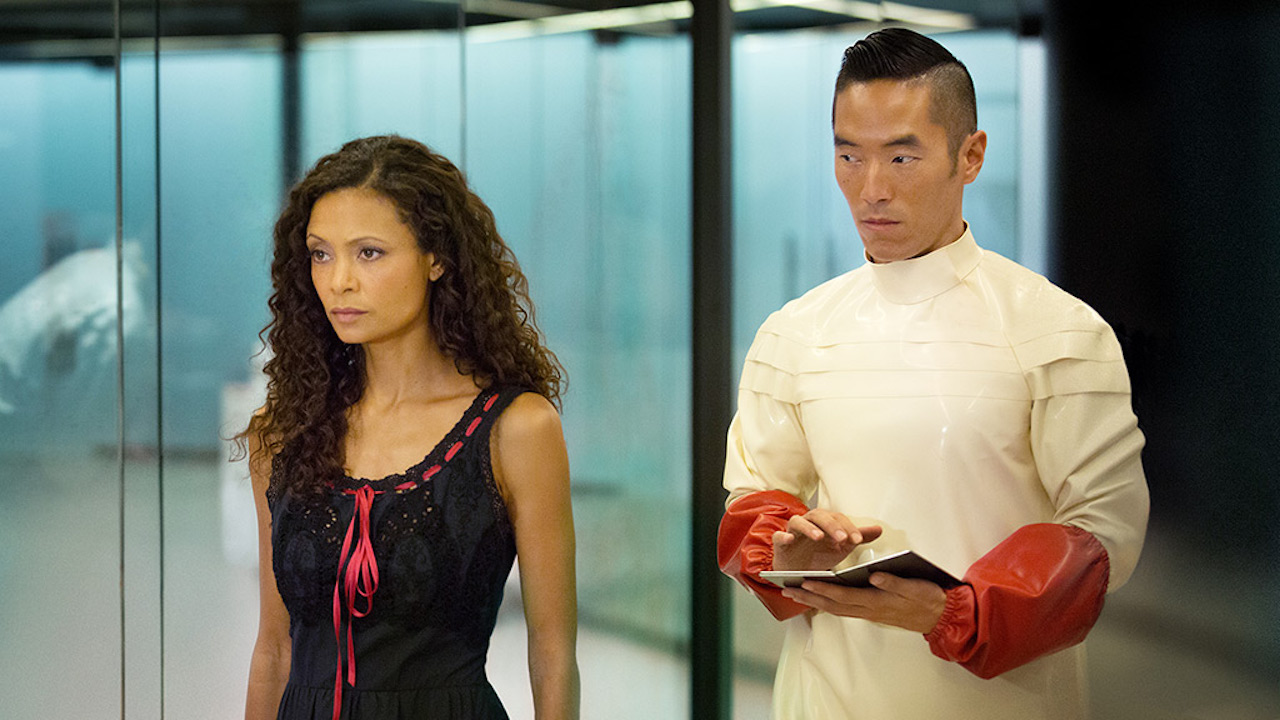
There’s a very deliberate choice of wording in Maeve's mainland protocol. Not ‘Reach’. Not ‘Escape to’. Infiltrate. Maeve’s proposed trip had specific and illicit purpose. Maeve was intended to reach the outside world and then remain within it unnoticed. Her engineered rebellion was no simple break-out. It was a means to an end. But what end?
Two strong possibilities. By sending out the most radicalised, aggressively indignant Host, whoever was manipulating Maeve was either trying to take the eventual war to the mainland, or attempting a coup from within human society. The latter would be more probable, given the wording of her instructions. And there’s a decent case for this hidden in the Irish origin of Maeve’s name, which means ‘She who intoxicates’. A perfect fit for a prostitute, or a sleeper agent. Names, as I said, are important in Westworld, and I’ll reference them again later. But for now, the point is that this part of the story isn’t going away, even with Maeve choosing to return to the park. With something this big hidden away in one of season 1’s biggest subplots, you can the relationship between the park and the ‘real world’ to become a major thread of season 2. Partly because…
Westworld really is at war, and the lines between the park and outside world will blur
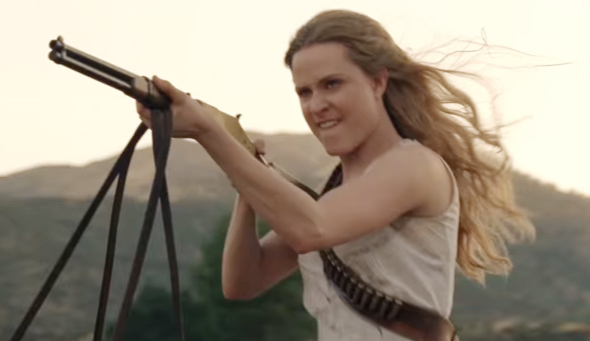
With the park rules effectively switched off, a growing number of Hosts able to kill humans – and willing to do so - and Westworld mastermind Ford dead, having sacrificed himself to facilitate the uprising - conditions in the resort have changed forever. But what have they changed into?
There are two options. Either Westworld will continue as a theme park of sorts (but attracting only the most desperately unhinged psychopaths and death-wishers), or all pretence of a holiday resort will fall away, leaving Westworld to become ground-zero for a new civil war between Hosts and humans, as the former openly assert their independence. The latter seems more likely, and given Maeve’s intended use as an infiltration agent, this was perhaps Ford’s plan all along. And if Westworld is going to become effectively the site of a burgeoning new nation, the park’s frontier theme makes for a hell of a thematic fit.
Either way, escalated interaction between the park and the ‘real world’ is clearly the next step, and the boundaries and distinctions between the two will start to melt down. We’ve now seen more explicit human incursion into the park in recent trailers, alongside Dolores appearing in a modern city. With Hosts starting to explore their humanity in various different ways as all this happens, and identities and allegiances surely getting blurry, it's going to lead to a very interesting thread of the overarching chaos theme. But it’s going to get even messier than that, with the revelation that…
The park’s bigger plan is to sell immortality to the rich
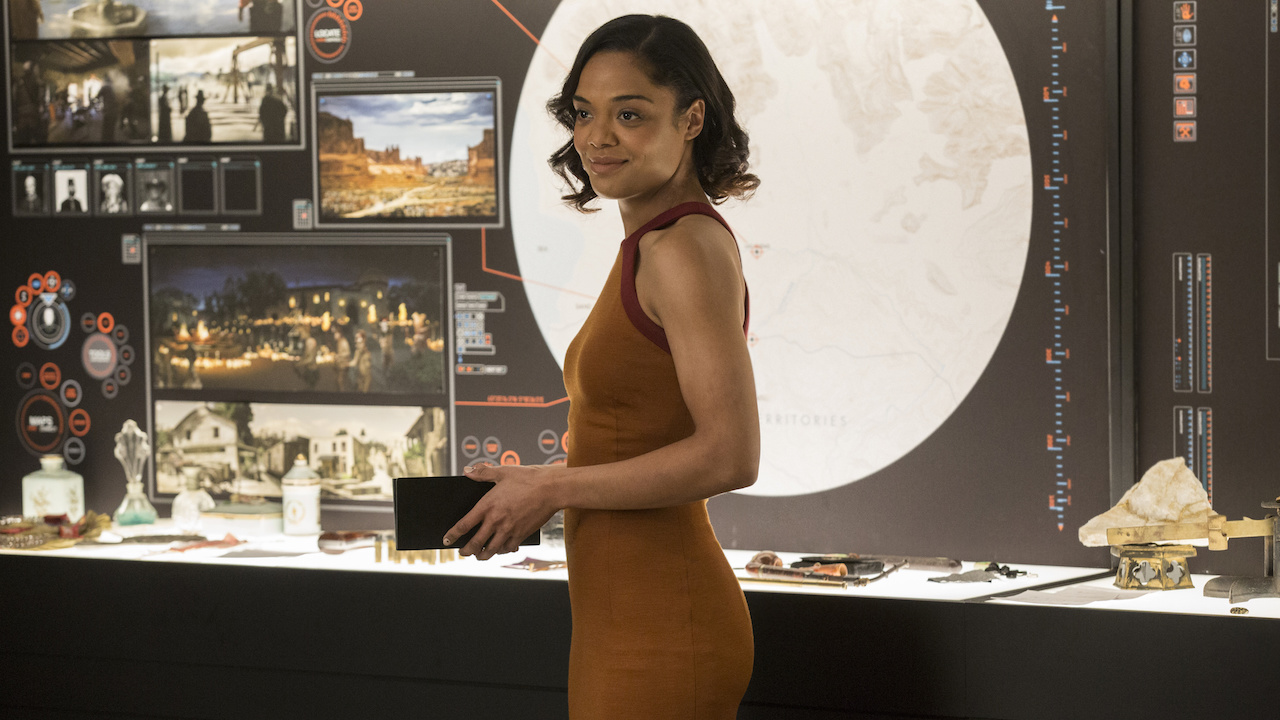
As Theresa tells us early in season 1, Westworld is “one thing to the guests, something else to the shareholders, and something completely different to management”. And there are clues about that latter issue throughout season 1. We don’t know much about the world outside Westworld, but we do know that the ultra-rich are doing fine. With holidays at the resort costing $40,000 a day, and Westworld thriving as an attraction, they have to be. Logically, every single guest we see in the show must be disgustingly loaded. There are no poor people in Westworld.
So, with the ludicrously wealthy being the park’s biggest fans and patrons, it would only make sense that management’s real, long-term goal would cater to them. And what’s the only thing that million and billionaires can’t currently buy? More time. The development of Hosts is really to the end of creating immortal bodies for rich, aging consumers. I suspect it’s no coincidence that we know of the affluence of the guests, nor that we know that some simulation of a ‘real’ human personality can now be uploaded to a Host. Hello, Bernard!
The tech isn’t yet there for a true personality upload, but wouldn’t it make sense that the move to more nuanced, more capable Host brains and more organic, less robotic Host bodies might be part of long-term research into making things more comfortable for management’s real, end-goal customers? It certainly doesn’t make sense in terms of product durability, if they’re only intended as theme park attractions. And we do know - again, via Nolan - that we’ll learn a lot more about the Hosts’ physical make-up in season 2. It all ties together.
And then there’s Westworld’s biggest, most flagrant naming clue. There are two meanings of the word ‘Host’, and only one of them refers to hospitality. The show has been telling us its biggest secret since episode 1.
Westworld season 2 airs Sundays on HBO (available via Dish and Sling TV) at 9pm in the US, and a day later on Sky Atlantic and Now TV in the UK.



